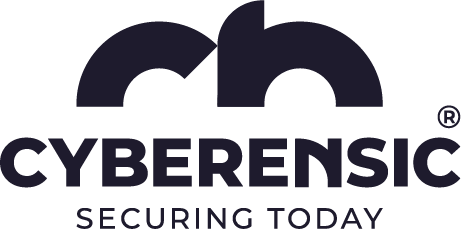Governance, Risk & Compliance (GRC)
We help organisations establish a defensible cybersecurity foundation aligned to globally recognised standards. Our GRC services include comprehensive gap assessments, maturity modelling, internal audit readiness, control implementation, and policy framework development. We also support third-party risk assessments, board-level reporting, and data governance uplift. Whether you're preparing for certification or uplifting operational resilience, our team ensures your program is tailored, defensible, and audit-ready.
ISO/IEC 27001: Information Security Management System (ISMS)
Overview:
ISO/IEC 27001 is the leading international standard for establishing, implementing, maintaining, and continually improving an Information Security Management System (ISMS). It provides a risk-based framework for managing sensitive information and safeguarding against cyber threats, breaches, and data loss.
Who it applies to:
Organisations of all sizes seeking a structured, auditable approach to information security management—especially those in regulated industries or expanding internationally.
Cyberensic’s services include:
- Gap assessments and clause-by-clause analysis
- Risk assessment and Statement of Applicability (SoA) development
- ISMS documentation (policies, controls, registers)
- Internal audit and certification readiness
- Mapping to ISO 27002, ISO 22301, and other standards
Why it matters:
- Demonstrates compliance and due diligence
- Reduces cyber risk and operational exposure
- Enhances credibility with clients and partners
- Provides a scalable foundation for broader compliance programs
NIST Cybersecurity Framework (CSF)
Overview:
The NIST CSF is a widely adopted framework developed by the U.S. National Institute of Standards and Technology to help organisations manage cybersecurity risks. Its five core functions—Identify, Protect, Detect, Respond, and Recover—offer a clear structure for assessing and improving security practices.
Who it applies to:
Public and private sector organisations, particularly those in critical infrastructure, finance, healthcare, and technology who require a practical, flexible framework.
Cyberensic’s services include:
- Cyber maturity assessments and CSF benchmarking
- Control mapping and improvement roadmaps
- Policy and procedure development aligned to CSF
- Board-level reporting and compliance alignment
Why it matters:
- Scalable and adaptable to various maturity levels
- Supports crosswalks to ISO, SOC 2, Essential Eight
- Strengthens organisational resilience and transparency
Essential Eight (ACSC)
Overview:
The Essential Eight is a set of mitigation strategies developed by the Australian Cyber Security Centre (ACSC) to protect systems against cyber threats. It is a practical baseline for reducing the likelihood and impact of common cyber attacks, and mandatory for many government agencies.
Who it applies to:
Australian government agencies, DISP members, and businesses that manage sensitive data or support government clients.
Cyberensic’s services include:
- Maturity assessments (Levels 0–3) across all eight strategies
- Implementation and configuration guidance
- Documentation and verification for IRAP or internal audits
- Dashboards and uplift tracking
Why it matters:
- Helps prevent ransomware, phishing, and unauthorised access
- Aligns with ISM, CPS 234, and IRAP requirements
- Quick to deploy and measurable in impact
CPS 234: Information Security (APRA)
Overview:
CPS 234 is a prudential standard from APRA that mandates information security controls across regulated financial institutions. It focuses on maintaining security capabilities that align with risk exposure and business impact.
Who it applies to:
Banks, insurers, and superannuation providers regulated by APRA, as well as their material service providers.
Cyberensic’s services include:
- CPS 234 gap assessments and control alignment
- Incident response planning and breach notification workflows
- Third-party security governance and contract reviews
- Executive reporting and audit preparation
Why it matters:
- Ensures compliance with APRA expectations
- Reduces risk from internal and third-party failures
- Protects customer trust and financial stability
CPS 230: Operational Resilience (APRA)
Overview:
CPS 230 introduces new operational risk and resilience obligations for APRA-regulated entities. It requires institutions to identify critical operations, manage dependencies, and respond effectively to disruptions.
Who it applies to:
All APRA-regulated entities across banking, insurance, and superannuation sectors.
Cyberensic’s services include:
- CPS 230 readiness reviews and scenario planning
- Business continuity and disaster recovery planning
- Mapping of critical operations and third-party dependencies
- Resilience metrics and governance structures
Why it matters:
- Supports end-to-end risk visibility across operations
- Protects core services and customer outcomes
- Aligns security and resilience under one compliance umbrella
PCI DSS: Payment Card Industry Data Security Standard
Overview:
PCI DSS is a global standard designed to protect credit card transactions and cardholder data. It includes technical and operational controls for merchants and service providers handling payment information.
Who it applies to:
Retailers, SaaS providers, e-commerce platforms, payment processors—anyone storing, processing, or transmitting cardholder data.
Cyberensic’s services include:
- PCI DSS gap assessments and evidence preparation
- Network segmentation and technical architecture reviews
- Policies and operational documentation
- Coordination with QSAs and quarterly scanning
Why it matters:
- Prevents financial fraud and data breaches
- Mandatory for maintaining merchant status
- Enhances customer confidence and contractual compliance
SOC 2 & SOC 1: AICPA Trust Services Criteria
Overview:
SOC 1 and SOC 2 reports provide third-party assurance over internal controls. SOC 1 focuses on financial reporting controls (used by auditors), while SOC 2 evaluates operational controls around security, availability, and confidentiality—critical for cloud service providers and B2B SaaS.
Who it applies to:
Tech vendors, SaaS providers, managed service providers, and fintech firms engaging with enterprise or regulated clients.
Cyberensic’s services include:
- Readiness assessments and scoping
- Documentation of control activities and evidence gathering
- Liaison with CPA firms or auditing bodies
- Post-audit remediation and control enhancement
Why it matters:
- Speeds up enterprise vendor onboarding
- Supports trust in your service delivery and security
- Demonstrates mature governance and risk management
IRAP: Australian Government ISM / PSPF
Overview:
IRAP (Information Security Registered Assessors Program) enables assessment of ICT systems and services against the ISM and PSPF. It is essential for government-related organisations handling protected information.
Who it applies to:
Government contractors, DISP members, cloud service providers hosting government data, and critical infrastructure entities.
Cyberensic’s services include:
- IRAP pre-assessment readiness and gap analysis
- Development of SSPs, risk assessments, and ISM-aligned artefacts
- Cloud and network architecture reviews
- Support engaging with IRAP assessors and closing findings
Why it matters:
- Enables compliance for government contracts
- Enhances trust in cyber capabilities
- Required for many government digital services
ISO 22301: Business Continuity Management System (BCMS)
Overview:
ISO 22301 provides a management system standard for business continuity. It ensures that critical business functions can continue during disruptive events such as cyber incidents, natural disasters, or supply chain disruptions.
Who it applies to:
Highly regulated industries, essential service providers, and businesses reliant on digital systems.
Cyberensic’s services include:
- Business Impact Assessments (BIA)
- Business continuity plan design and testing
- Integration with cyber incident response
- Alignment with CPS 230 and ISO 27001
Why it matters:
- Builds resilience across operational and digital domains
- Reduces downtime and recovery time objectives (RTOs)
- Supports stakeholder and regulatory expectations
ISO/IEC 27032: Cybersecurity Governance
Overview:
ISO 27032 focuses on improving cybersecurity through collaboration and governance. It addresses online threats like cybercrime, hacktivism, and security of internet-facing systems, complementing broader standards like ISO 27001.
Who it applies to:
Enterprises managing large digital ecosystems, partner networks, and critical online services.
Cyberensic’s services include:
- Cyber governance model development
- Threat intelligence and incident coordination plans
- Strategic policy setting and executive engagement
- Awareness and collaboration initiatives
Why it matters:
- Improves cyber readiness across internal and external teams
- Aligns security with business and risk strategy
- Enables a shared security culture and response posture
ISO/IEC 42001: Artificial Intelligence Management System (AIMS)
Overview:
ISO/IEC 42001 is the world’s first standard for managing the responsible use of AI. It defines how organisations should govern, risk-assess, and ethically deploy AI systems—especially when AI decisions impact people, services, or operations.
Who it applies to:
Organisations building or using AI in areas such as finance, health, HR, critical infrastructure, and government services.
Cyberensic’s services include:
- AIMS policy and governance framework development
- AI risk assessments and alignment to ISO 42001 clauses
- Control design for explainability, bias, and data governance
- AI audit readiness and model lifecycle support
Why it matters:
- Enables responsible innovation and digital trust
- Reduces legal, reputational, and compliance risks
- Supports alignment with evolving regulations (e.g. EU AI Act)
With a pragmatic approach and deep domain expertise, we empower your organisation to build lasting trust, achieve regulatory confidence, and stay resilient in an evolving threat landscape.
Service Inquiries
We assess your organization's needs, provide tailored cybersecurity solutions, support, and evaluations for ongoing security enhancement.


Service Inquiries
We assess your organization's needs, provide tailored cybersecurity solutions, support, and evaluations for ongoing security enhancement.
